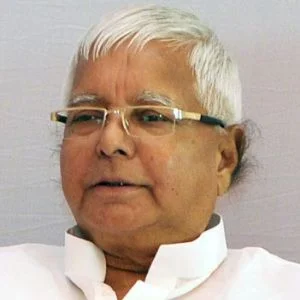Land-for-jobs case: Railway Ministry exerted excessive pressure to clear applications, claims CBI

CBI Accuses Lalu Prasad of Land-for-Jobs Scam During Railway Tenure
The Central Bureau of Investigation (CBI) has brought former Railway Minister and Rashtriya Janata Dal (RJD) chief Lalu Prasad Yadav back into legal scrutiny. The agency claims that Lalu and his family accepted land parcels from job aspirants in exchange for railway appointments during his tenure as Union Railway Minister from 2004 to 2009.
In its latest chargesheet filed in a Delhi court, the CBI outlined a detailed pattern where job applicants or their families transferred land to Lalu’s relatives at significantly discounted rates.
Land Deals and Discounted Rates
According to the CBI, multiple job applicants either directly or through their family members sold land at extremely low prices to Lalu Prasad’s family. These weren’t regular real estate transactions. Instead, the CBI claims that these were part of a coordinated scheme where the land acted as a bribe to secure railway jobs.
The chargesheet highlights that over 1 lakh square feet of land changed hands in favor of Lalu’s family, but they paid only ₹26 lakh for it. Meanwhile, the official value (circle rate) of the land exceeded ₹4.39 crore. The stark gap between the paid amount and market value, the CBI argues, proves that these were not legitimate business deals.
Political Pressure on Recruitment
The CBI says Lalu Prasad used his ministerial power to pressure officials within the Indian Railways to process job applications tied to these land transactions. Instead of going through standard interviews or document verification, these candidates received job offers quickly and unusually easily.
The investigation found repeated patterns where a candidate’s relative transferred land, and shortly afterward, the candidate received a Group-D railway job.
Family Gains and Property Transfers
The land transferred as part of the alleged scheme ended up in the hands of Lalu’s wife Rabri Devi, his daughters, and even his close associates. In one case, a job aspirant’s father gifted land to Rabri Devi without charging any money, just weeks before his son got a job.
Another incident involved a plot worth ₹1 crore that Lalu’s family acquired for ₹2.5 lakh. The CBI confirmed that all these plots were located in prime areas of Bihar, making them highly valuable.
Why the Allegations Matter
These findings point to more than just personal gain. They represent a betrayal of public trust and a complete bypassing of transparent government recruitment processes. Public-sector jobs are a major source of livelihood in India, especially in states like Bihar. If people got these jobs by giving away land instead of clearing merit-based exams, that undermines fairness for countless others.
The case also affects Lalu Prasad’s legacy, which already includes convictions in the fodder scam. Even after being released on bail due to health reasons, this new controversy could seriously impact both his reputation and his party’s future.
The Legal Proceedings
The Delhi court has acknowledged the chargesheet and summoned Lalu Prasad, his family members, and former Railway officials who allegedly helped facilitate these appointments.
If the court finds the allegations credible, the accused may face charges under:
- Indian Penal Code (IPC) sections for conspiracy, cheating, and criminal breach of trust
- The Prevention of Corruption Act, for misuse of position and accepting illegal advantages
Legal experts suggest that property documents, job appointment letters, and witness statements will be crucial in proving the case.
Political Responses from All Sides
As expected, the BJP reacted sharply, accusing the RJD of running a corrupt empire. “Another scam in the name of governance,” a BJP leader said. “This is why Bihar rejected the RJD before, and it will again.”
On the other hand, RJD leaders dismissed the charges as politically motivated. They questioned the timing of the chargesheet and claimed it was a distraction from the real issues affecting people today.
Regardless of political affiliations, these revelations have shocked many voters who had hoped for a cleaner political landscape in Bihar.
Impact on Bihar’s Political Climate
With elections approaching, this case could become a major talking point. Lalu’s son, Tejashwi Yadav, has been trying to revamp the RJD’s image and appeal to younger voters. But this case might undermine those efforts and remind the public of past corruption scandals.
In a state where jobs are scarce, this scandal may feel personal to many. Voters are unlikely to ignore allegations that jobs were “sold” in exchange for land—especially when those jobs could have supported families in need.
Conclusion: Accountability in Focus
This isn’t just a case about one politician’s wrongdoing. It challenges the integrity of public recruitment and calls into question how political power is used—or abused. If proven true, it would highlight a serious failure in maintaining transparency and fairness within a critical government institution.
As the trial proceeds, the outcome will shape not just Lalu Prasad’s future, but possibly the public’s trust in the system itself.






